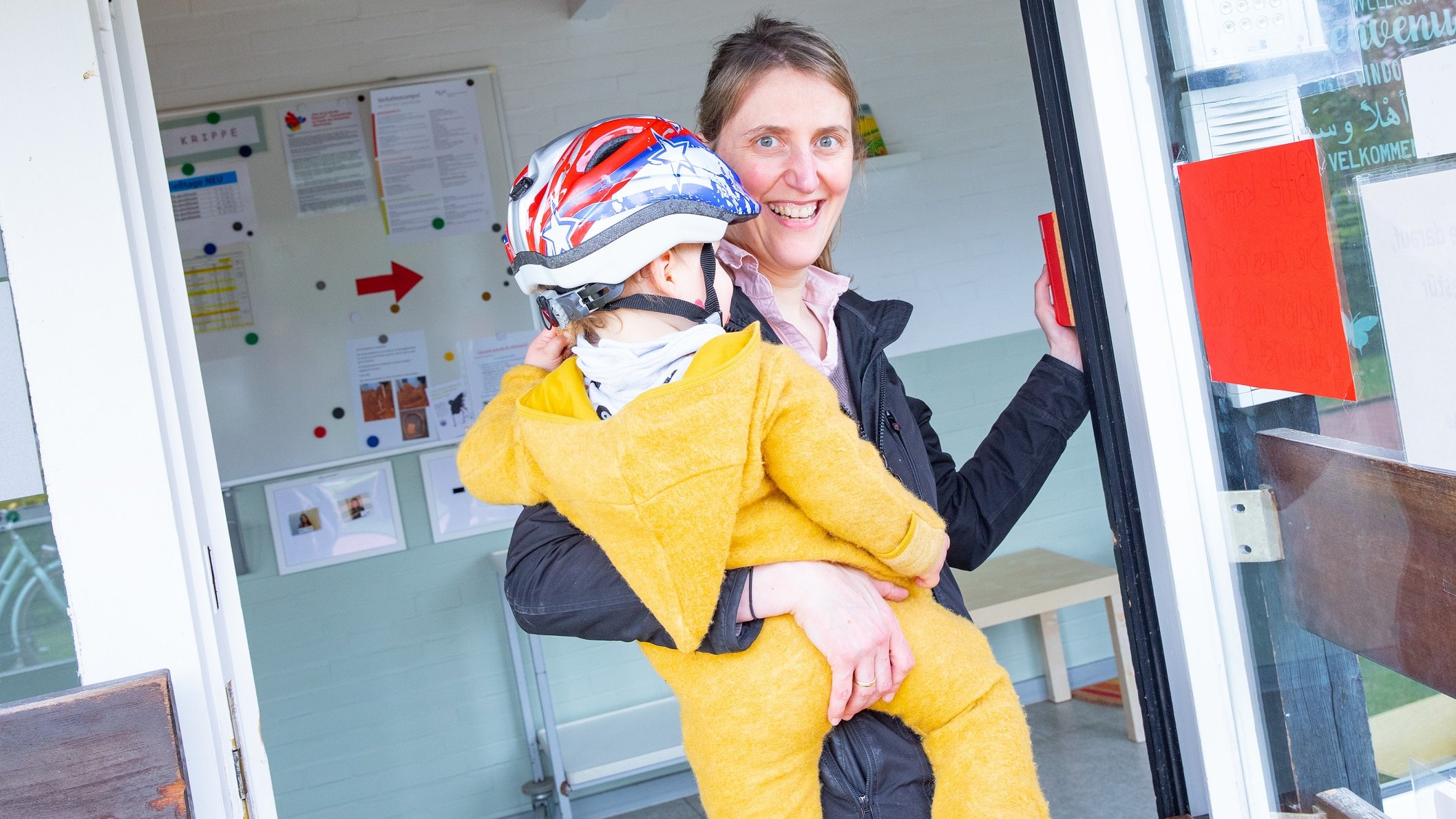Special daycare offer for children of female scientists

Professor Dr. Felicitas Thol secured a spot at the MHH-Campuskinder daycare for her son through her academic achievements.
With the birth of her son Johann, Professor Dr. Felicitas Thol faced a significant challenge. She wanted to continue her role as a senior physician in the Department of Hematology, Hemostasis, Oncology, and Stem Cell Transplantation, advance her research in leukemia, and ensure her child received excellent care. “A regular daycare with typical hours just wouldn’t work,” says the physician. However, a special offering from the MHH-Campuskinder daycare provided the perfect solution. The recently recognized facility, awarded second place in the German Daycare Award, offers so-called WiNK spots in their regular daycare groups. This "Young Researchers’ Crèche" is intended for the children of female doctors and researchers working at MHH.
Performance-based Allocation Process
Applicants for a WiNK spot must submit extensive documentation of their scientific work—ranging from academic articles, book contributions, or case reports to third-party funding, awards, and supervision of scientific theses. This was not a problem for Professor Thol, who has received national and international accolades for her research and teaching, completed her specialist training in the USA, and holds multiple qualifications, including "Physician for Internal Medicine, Hematology, and Internal Oncology," along with "Hemostasis," "Palliative Medicine," and "Laboratory Diagnostics in Internal Medicine." She has led over 20 clinical studies and is listed on the scientific data portal PubMed with more than 150 publications. “This performance-based allocation process is objective,” notes the hematologist. “For me personally, it means that MHH values my work and supports my scientific endeavors.”
The WiNK spot also provides time flexibility for the mother. “I can drop off Johann early enough to arrive at work on time,” says the doctor. Since the daycare is located directly on the MHH campus, it eliminates time-consuming, unnecessary travel. Since March of this year, the 14-month-old boy has been in the Hummel group. The transition was gradual and gentle. “Johann feels completely comfortable in his Hummel group, and the educators are incredibly dedicated,” emphasizes Professor Thol. Knowing her son is exceptionally well cared for allows her to focus entirely on her work and then enjoy quality time with her child. “I am very grateful for that.”
Text: Kirsten Pötzke